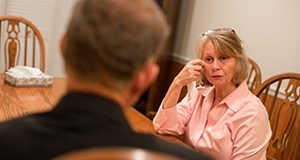Issues and questions about care at the end of life are as unique and complex as the individual receiving care. The condition and culture of the patient and family, religion, spirituality, education, occupation, social class, friends, and personal preferences can affect end-of-life care. Sometimes decisions are made by the individual patient. At other times, the family and health care providers are involved. This 6-page fact sheet, part of a new series entitled The Art of Goodbye, explores health concerns and discusses aspects and types of care at the end of life. Written by Lynda Spence, and published by the UF Department of Family, Youth and Community Sciences, July 2016.
http://edis.ifas.ufl.edu/fy1467
Tag: EOLE
The Art of Goodbye: Exploring Self-Reflection
Many people assume that preparing for the end of life involves filling out forms at the doctor’s or lawyer’s office. Forms and checklists have their place and can be helpful, but they cannot address every issue because end-of-life concerns are complicated. Self-reflection is a helpful tool that begins to lay a foundation for planning while articulating people’s complex and unique emotions, values, priorities, fears, and preferences when it comes to facing their own mortality. This 4-page fact sheet is the second publication in a new series entitled The Art of Goodbye, and it covers resources that can help individuals explore their personal concerns and values before initiating end-of-life discussions with loved ones. Written by Lynda Spence and Chelsea Tafelski, and published by the UF Department of Family, Youth and Community Sciences, July 2016.
http://edis.ifas.ufl.edu/fy1465

